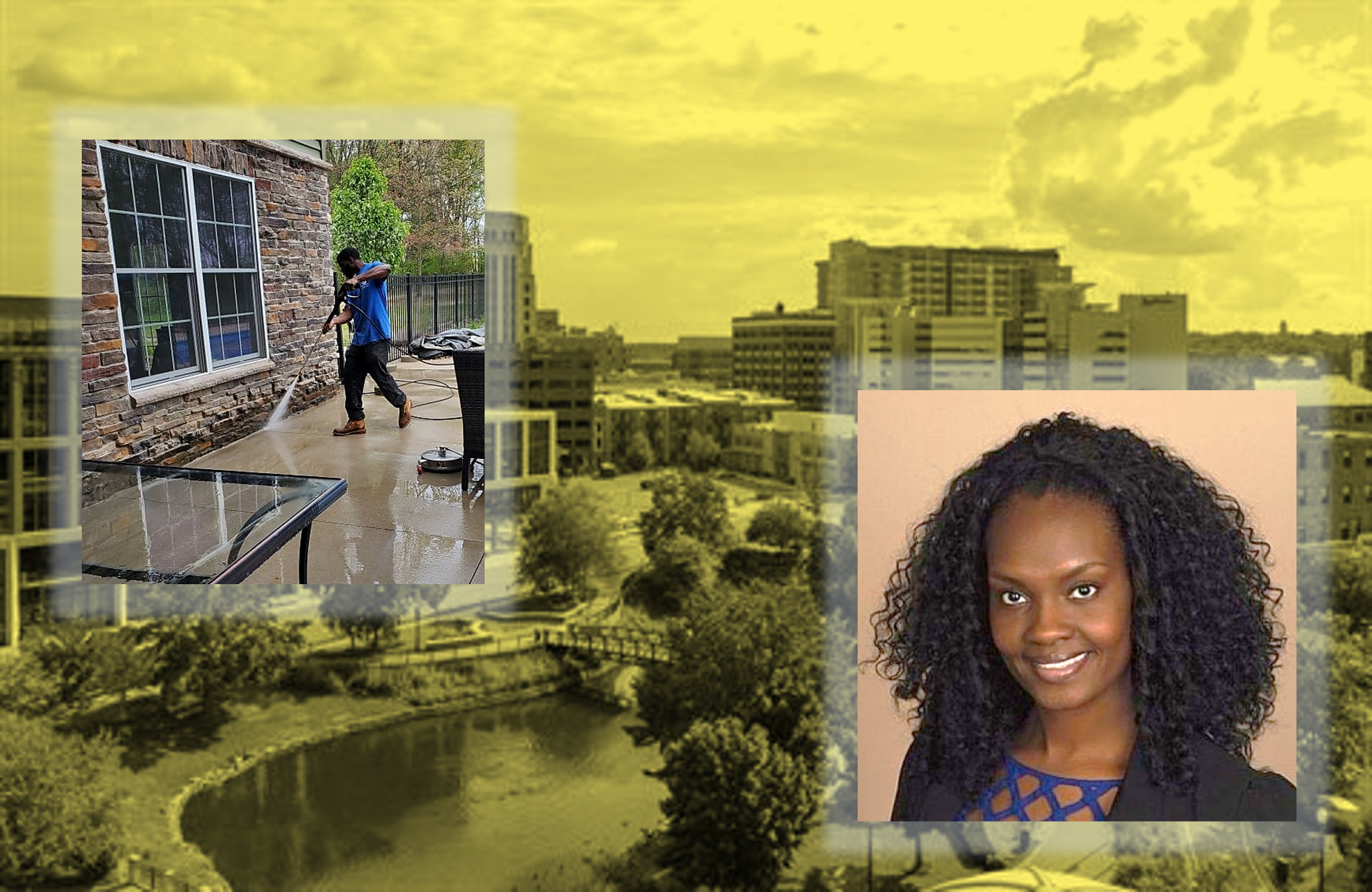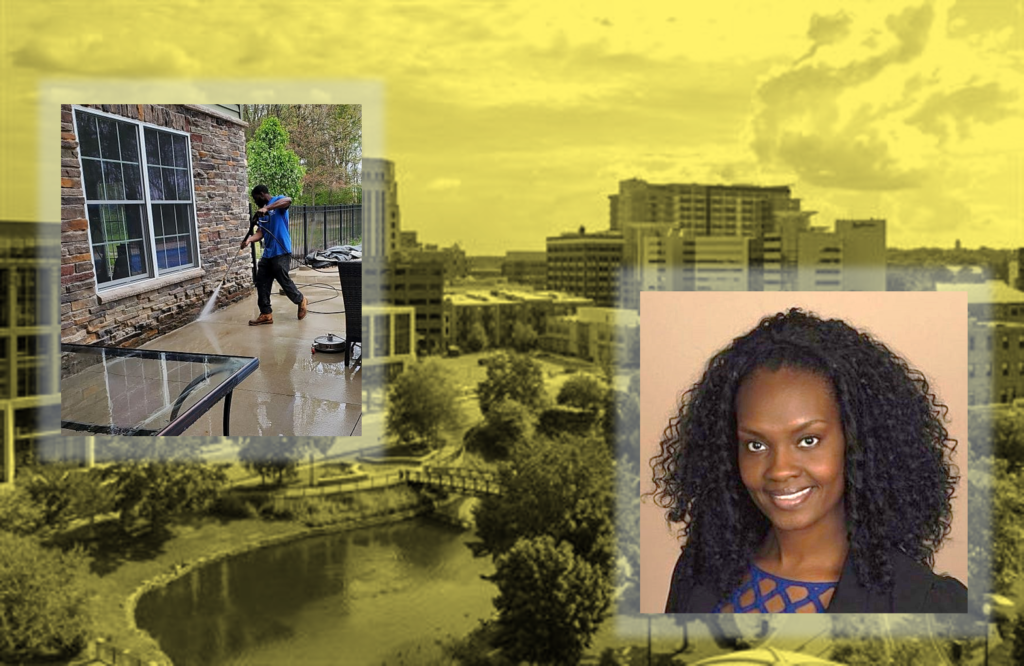
A third round of grants totaling $300,000 is lifting 60 Kalamazoo microbusinesses and bringing economic benefits directly to 17 neighborhoods.
United Way of South Central Michigan (UWSCMI), the City of Kalamazoo and the Foundation for Excellence (FFE) announced the third round of Kalamazoo Micro-Enterprise Grants (KMEG) for the third consecutive year. In 2020, the unique local partnership granted $500,000 to 100 eligible businesses to help them cope with the economic impact of the COVID-19 pandemic, followed by $450,000 to 90 businesses in 2021. Another grant round later this year will provide an additional $300,000 in assistance to micro-enterprise businesses in the City of Kalamazoo.
“KMEG serves a vital role in supporting our community’s smallest businesses, especially those owned by individuals from historically under-resourced populations,” said Molly Trueblood, Associate Director of Community Impact for Small Businesses, UWSCMI. “When these small businesses succeed, they strengthen the economy of their neighborhoods and ultimately the city as a whole. Providing targeted support to these micro-enterprises is also a key step in building a more equitable community.”
Trueblood applauded the City of Kalamazoo and FFE for the three-year partnership. “It’s great when partners like these commit to working together to help our whole community thrive. KMEG is a unique opportunity to support local small business owners at the grassroots level, and that’s something that doesn’t happen every day,” she said.
KMEG provides grants of $5,000 each to eligible microbusinesses within the city limits. The Kalamazoo City Commission approved funding for this round of KMEG in March, and UWSCMI solicited and reviewed grant requests during the summer. As a result, 60 micro-enterprise businesses within the city limits are receiving grants.
For a complete list of the 60 KMEG recipients and more details on the grants, go to changethestory.org/micro-enterprise-grants.
The new round of grants aims to support community members living below the ALICE (Asset Limited Income Constrained and Employed) threshold, with a strong focus on providing support to BIPOC-owned and women- owned microbusinesses, as well as the Shared Prosperity Kalamazoo neighborhoods of Northside, Eastside, and Edison. BIPOC stands for Black, Indigenous and all People of Color. Historically, BIPOC- and women-owned businesses have struggled to access funding compared to other businesses.
“The City’s partnership with United Way and Foundation For Excellence allows us to get these financial relief grants quickly into the hands of our community’s smallest businesses. With its focus on underserved entrepreneurs in Shared Prosperity Kalamazoo neighborhoods, this grant program plays an important role in building a strong, inclusive economy in our city,” said Antonio Mitchell, , Deputy Director of Community Planning & Economic Development for the City of Kalamazoo.
According to Trueblood:
- 50 grants went to business owners who identified as Black or African American. The remaining grants went to business owners who identified as Hispanic/Latinx, American Indian, or multiple races. One grantee did not disclose their racial identity.
- 45 grants went to business owners who identified as women.
- 37 grants went to businesses in Shared Prosperity Kalamazoo (SPK) priority neighborhoods. SPK is an effort by the City, FFE and community groups to increase access to economic success in historically underserved areas.
- 59 grants went to businesses with 2021 revenues of $50,000 or less, making a $5,000 award a meaningful investment in their business.
Since KMEG launched in 2020, 250 microbusinesses based in 18 Kalamazoo neighborhoods have received a total of $1.25 million in grants.
Grant Dollars Quickly Invested
Microbusinesses receiving KMEG support have already put those dollars to work.
T&T Universal, LLC, provides clinical testing and other health services, notably testing for COVID-19 for residents in underserved neighborhoods. According to owner and founder Toni McDaniel, the KMEG funds come at a crucial time.
“The grant will help the clinic stay open and allow us to continue bringing COVID testing services to the Northside and Edison neighborhoods,” McDaniel said, adding that the grant will help purchase personal protective equipment (PPE) and keep clinicians employed. “Through the Vaccinate the Great Lakes State initiative, United Way also helped connect me to a local nonprofit fiduciary so that we can provide vaccination education to folks who receive our testing services.”
Lavel Jackson, owner of Pressure Power Washing, is using grant dollars to raise the visibility of his business, which provides pressure washing for homes, roofs, driveways, decks and patios, and parking lots.
“I have used the grant to advertise my business online and with yard signs around town,” he said. “I also used some of the grant funds to purchase equipment. These investments are helping my business go to the next level in terms of getting more jobs and hiring more people.”

KMEG Program Explained
Micro-enterprises, also known as microbusinesses, are very small businesses—typically 10 or fewer employees— that bring unique skills and services to the community. According to the U.S. Small Business Administration, micro-enterprises make up about 75% of private sector employers. Many micro-enterprises are BIPOC-owned and/or women-owned. They are vital to income and wealth generation in underserved communities.
Eligible businesses had to qualify as follows:
- Be a for-profit company located in the City of Kalamazoo for at least one year.
- Have 10 employees or fewer.
- Have annual revenue of $1.0 million or less.
- Have been in operating for more than one year.
- Demonstrate a need for working capital to support payroll expenses, rent, mortgage payments, utility expenses, or other similar expenses that occur in the ordinary course of business.
KMEG funds can be used for, but are not limited to, operational costs (such as rent, mortgage, utilities and other ordinary business expenses), payroll and benefit costs for employees. Recipients must use their grant funds within six months and report back to United Way on how the funds are used. KMEG strives to increase access to funds for populations who have historically not had access to traditional grant and lending sources. In an effort to remedy these disparities, BIPOC-owned businesses, women-owned businesses, and businesses located within the Shared Prosperity Kalamazoo neighborhoods of Eastside, Edison, and Northside were encouraged to apply. In addition to this emphasis, UWSCMI continues to maintain a commitment to all people, regardless of age, race, ethnicity, gender, gender identity, religion, sexual orientation, socio-economic status, or physical, mental or developmental abilities.
